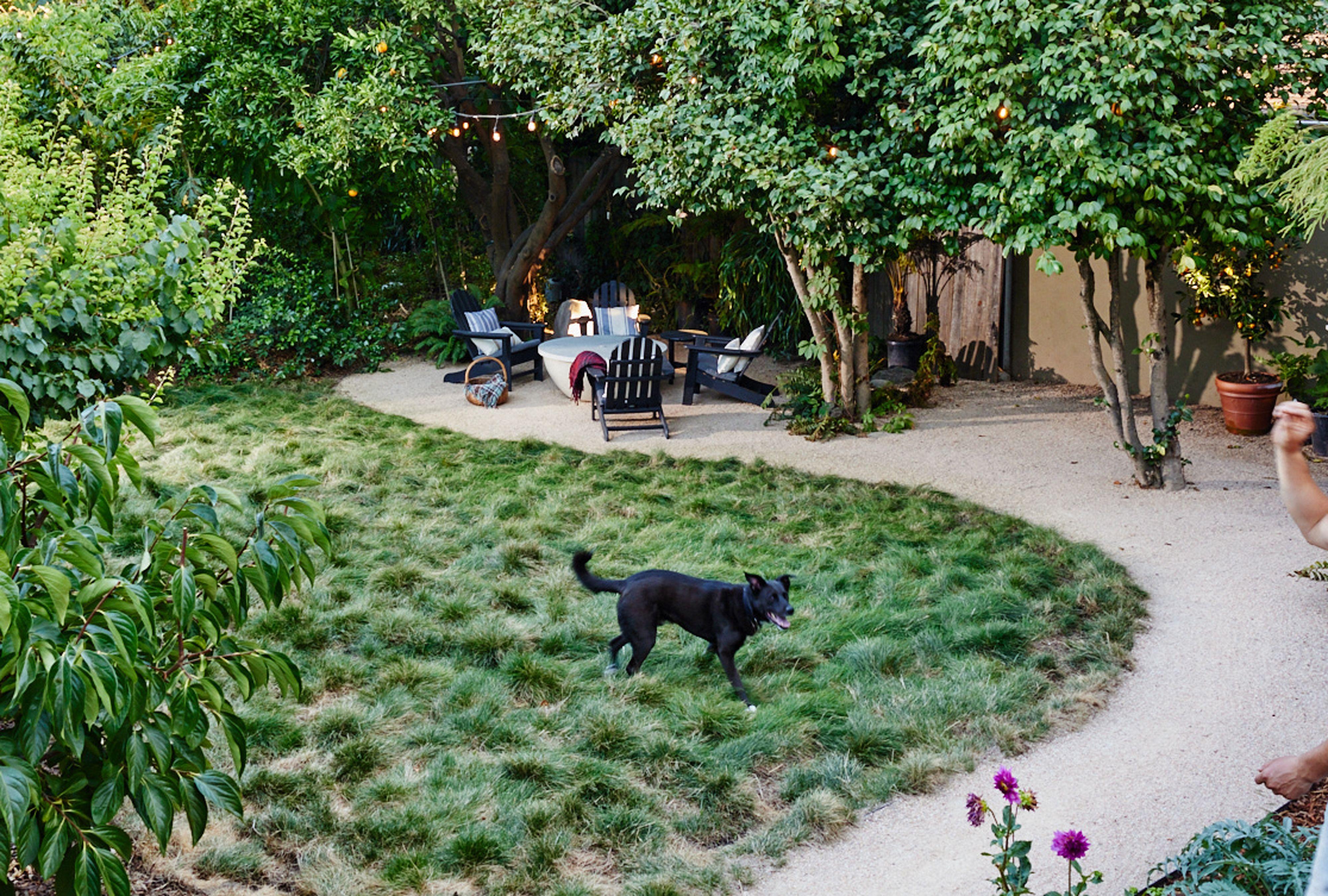-
Feed de Notícias
- EXPLORAR
-
Páginas
-
Blogs
-
Fóruns
7 Groundcovers That Give You a Lawn-Like Look—Without the Mowing

7 Groundcovers That Give You a Lawn-Like Look—Without the Mowing
There are several reasons why homeowners are looking for alternatives to the traditional mowed yard: reduced maintenance, lower water usage, habitat for beneficial insects, or just a cool look.
Switching to a lawn alternative doesn't have to be an all-or-nothing decision. You may want to keep turfgrass in high-traffic areas, such as pathways and around decks and patios. Then, for lower-traffic spaces, a different approach might be better than common turfgrass. Consider these grassy lawn alternatives to create a carpet of green that won't require regular mowing.
Buffalo Grass
Adam Albright
Buffalo grass (Bouteloua dactyloides) is characterized by its short stature, fine texture, and bluish-green color. It's a fast-spreading native grass (that's why it is often used as a turfgrass), with each clump reaching approximately 6-8 inches in height and 12 inches in width. It remains green in the hotter parts of the summer but turns brown and becomes dormant during winter.
Buffalo grass requires full sun and good drainage, and it will not thrive in shady conditions. It's drought-tolerant and resilient. Several cultivars are available. It can be purchased as plugs or seed.
Best suited for: Low-traffic areas, hillsides, and poor soil
Hardiness Zones: 3–9
Moss
Laurie Black
Moss for a yard sounds like it belongs on the grounds of some ancient European castle. But it's catching on and for good reason. Moss creates a beautiful, emerald green carpet full of texture. And once established, it typically requires no mowing, fertilizing, or watering.
Many homeowners try to get rid of moss, but in sites where moss already likes to grow, you might be less frustrated by working with it instead of against it. Damp, shady areas are ideal for establishing moss as a groundcover. Popular species used for moss lawns are sheet moss (Hypnum curvifolium) and carpet moss (Hypnum cupressiforme).
Moss plugs are available for sale as flats. If you have existing mossy areas in your yard, encourage the moss to spread by removing the remaining turfgrass and gently moving small patches to the new site.
Best suited for: Shaded areas, low-traffic areas (add stepping stones for high-traffic pathways), moist soil
Hardiness Zones: 3-9, depending on species
Liriope
Also known as lilyturf, liriope (Liriope muscari) is a grass-like plant that flowers and is often used in landscaping as a border around trees or sidewalks. But it can be adapted to mass plantings as well, especially in areas you'd rather stop mowing.
Liriope has long, slender leaves that arch over like a fountain. It reaches approximately 12 inches in height, depending on the cultivar, and has solid-colored or variegated foliage. Liriope will grow in full sun to partial shade conditions and well-drained sites.
Best suited for: Low-traffic areas, such as hillsides and edging
Hardiness Zones: 5-10
Mondo Grass
Mondo grass (Ophiopogon japonicus) has a clumping growth form, and when planted in larger areas, creates a shaggy, textured look. Its grassy leaves arch over, are long and slender, and extend at all angles from the base, like a crazy hair day.
This grass is ideal as part of a larger perennial yard and performs well in full sun to partial shade, although partial sun is best. It grows about a foot tall and slightly wider and is relatively unbothered by pests. In southern states, mondo grass is considered an invasive plant and should be planted with caution.
Best suited for: Areas with no or only occasional foot traffic and out-of-the-way spots with fertile, moist, well-drained soil
Hardiness Zones: 6-11
Dwarf Golden Sweet Flag
Laurie Black
Sweet flag is a genus of grass-like perennials. This compact dwarf cultivar (Acorus gramineus 'Minimus Aureus') is a favorite for turf alternatives because it reaches approximately 4 inches in height but spreads to be more than 12 inches wide. Its yellow-green foliage grows well in full sun to partial shade, and it thrives in wet conditions.
Dwarf golden sweet flag forms a mat of golden-green foliage over time and is semi-evergreen. It's a great choice for sites with slower drainage where many other plants struggle.
Best suited for: Wet sites, rain gardens, and sites with occasional standing water
Hardiness Zones: 5–9
Pennsylvania Sedge
Denny Schrock
Sedges (Carex spp.) are grass-like plants that grow in clumps, creating a more textured surface than a mowed yard. There are numerous species that make excellent lawn alternatives, but one native option is Pennsylvania sedge (Carex pensylvanica). This low-growing, emerald-green sedge spreads rapidly, and grows in moderately dry to moist soils. Pennsylvania sedge does well in sun and partial shade conditions. It will withstand moderate traffic once established.
Pennsylvania sedge is best started from plugs in larger areas, as the seed is slow to germinate. Continue propagating mature clumps by division in spring.
Best suited for: Moderate-traffic areas, well-drained sites, places where a more traditional lawn look is desired
Hardiness Zones: 4–7
Appalachian Sedge
HenrikAMeyer / Getty Images
Another native sedge to consider is Appalachian sedge (Carex appalachica). It has finely textured foliage that bends over under its own weight, creating an arching look. Vivid green leaves grow from a central clump, and massed plantings have a flowing look.
This sedge does well in partial or full shade, on well-drained, drier sites. While individual leaves can reach 18 inches long, the plant itself rarely exceeds 8 inches in height. Foliage can be cut back low in late winter for lush spring growth.
Best suited for: Low-traffic areas with drier soil, shady sites where other plants struggle
Hardiness Zones: 3–8


